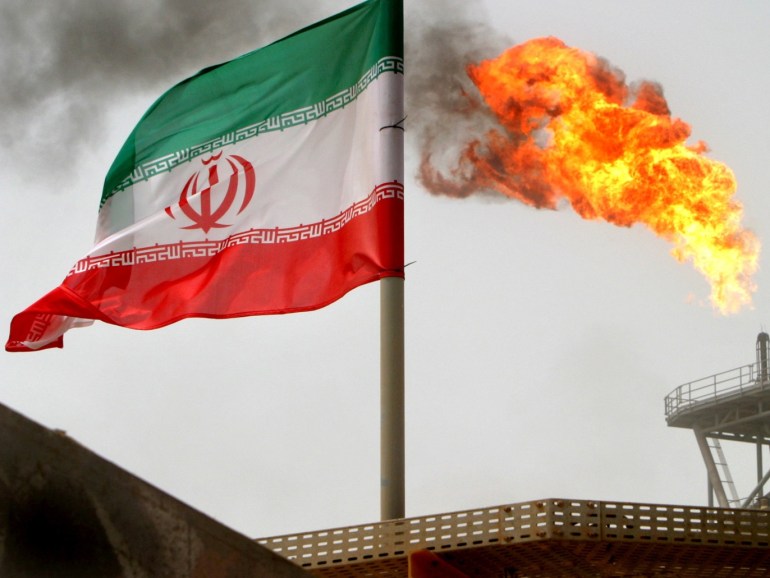Al Jazeera Net - Beijing
Since the beginning of 2016, which saw the visit of Chinese President Xi Jinping to Iran, and the issuance of a joint statement after the signing of a comprehensive strategic partnership between the two countries; News and rumors continued to circulate in detail about the details of this partnership, at a time when the two parties were finalizing it.
And with what the Western media revealed to what it says are the details of a strategic partnership agreement between Beijing and Tehran, which claims that China will invest 400 billion dollars to develop oil, gas and transportation infrastructure in Iran; There are media leaks that have not been confirmed by the official authorities in the two countries.
Although Iranian Foreign Minister Mohammad Javad Zarif acknowledged during a session of parliament in Tehran that they are discussing a 25-year strategic agreement with China, Beijing did not announce any details about that, and a Chinese Foreign Ministry spokesman at a press conference confirmed only what was reported by Iranian authorities, without making a statement. Any additional information.
Integrated partnership
The terms of the energy agreement - according to "Oil Price" - indicate that China will invest $ 280 billion in oil, gas and petrochemical projects during the first five years of the two-and-a-half-decade agreement, in addition to infrastructure investments, and China will receive a priority for it For its companies in awarding contracts for oil, gas and petrochemical projects offered by Iranian energy companies, and discounts on the purchase of these products.
Hassan Al-Momani, a professor of international relations at the University of Jordan, believes that signing the strategic agreement between the two countries will strengthen relations between the two parties and push them forward towards deeper cooperation in various fields to form an integral aspect.
Al-Momani explained to Al-Jazeera Net that Iran might be a major source to satisfy China's need for energy, while Iran needs Chinese technology to develop the energy, oil and infrastructure sector, and since China has the capital to do so, it may provide - to some extent - an alternative to Iran from any sources Others, especially Western.
He also pointed out that China will consolidate its presence and enhance its presence and influence in the Middle East, as China has always been moving from the point of its direct geography towards Southeast Asia and the Far East, but with this step a global phase will begin Chinese influence, which will be strengthened in the Arab Gulf region.
Alliance against a common competitor
China and Iran are moving from a unified feeling that the United States is their common competitor, and Beijing, after the Covid-19 pandemic, has been reinforced that there are attempts to contain and influence them economically; This pushed the desire of the two countries to move forward on the path of completing this partnership, according to researchers.
"The countries that were the victim of American policy have united and started forming an alliance to strike the American presence in the Middle East, which will encourage other countries to join this axis," said political scholar Adel Shedeed.
He added in an interview with Al-Jazeera Net that Iran - which needs China economically and militarily - is trying to pay the Europeans the price of staying under the American cloak by heading towards China, and notifying them of the damage done to their interests as a result of the American policies after canceling deals with Iran, which could lead to a change in policy European policy towards Iran, and their economic interests prevailing over their political relations with the United States.
Shadid pointed out that China’s endeavor to strengthen its partnership with Iran means that it started challenging US sanctions, imposing its economic will, and reciprocating the American side, which strengthens the strength of Chinese companies operating abroad, which could be subject to future sanctions as a result of its work with Tehran.
Regional plan
The Iranian oil and gas sectors are living in difficult conditions as a result of the US sanctions, despite Tehran's relentless efforts to circumvent it, and seize any opportunity that might contribute to reviving its economy.
The specialist in global political economy, Ahmed Al-Qarout, believes that the agreement that is being talked about is anonymous, and does not clarify whether China will provide these sums as debt or according to another mechanism, but he stressed that building China projects with usufruct rights for 25 years will cause a loss to the Iranian economy, but it may It opens the way for Tehran's economy in many side sectors that may contribute to its recovery.
In his interview with Al-Jazeera Net, Al-Qarout added that this agreement would open the way for the Iranian investor to the Chinese market without fear of Western sanctions, which constituted an obstacle to him in the issue of investment outside the country, especially as he faces an internal dilemma, as most of the investments are state-owned. And its devices.
Al-Qarout said that the value of investments - according to what has been talked about - is very huge, compared to strategic agreements signed by China with other countries, which indicates that the agreement with Iran may come within a regional plan, in light of the efforts of many countries to go towards China.
Noting at the same time that this agreement can be placed in the context of international competition seeking to set the conditions for global trade exchange for the next century, and telling the world that a country like Iran was suffering from financial difficulties was transferred to a country that enjoys financial stability and long-term investments in vital and major sectors, and has become Real development, prosperity and regional security.

